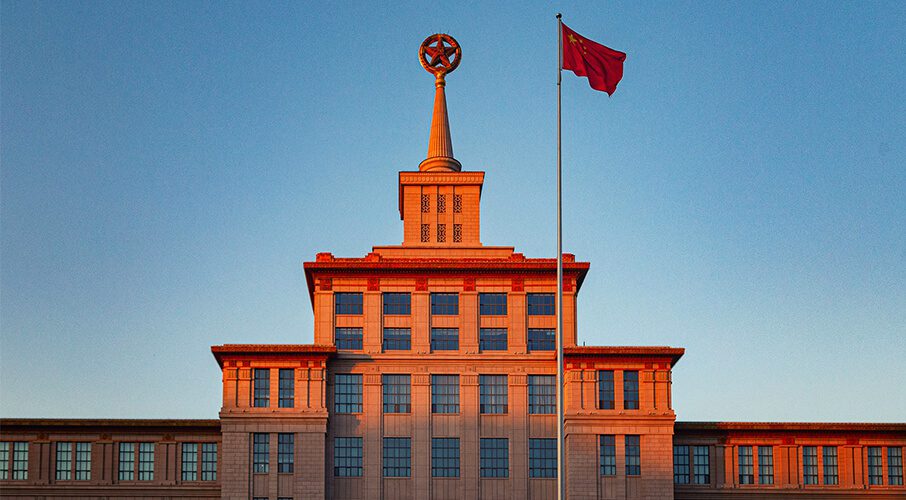 Regardless of the outcome of Beijing’s hostage-taking, Margaret McCuaig-Johnston writes that Canada needs to adopt a more serious view toward China.
Regardless of the outcome of Beijing’s hostage-taking, Margaret McCuaig-Johnston writes that Canada needs to adopt a more serious view toward China.
By Margaret McCuaig-Johnston, January 6, 2020
With the new Cabinet in place, the most important foreign affairs issue facing the federal government is the management of our relations with China.
China’s detention of Michael Kovrig and Michael Spavor, and the execution court rulings for Robert Schellenberg and Fan Wei on drug charges, in retaliation for the arrest of Huawei executive Meng Wanzhou, is a wakeup call for Canadians about the nature of Xi Jinping’s regime.
Clearly, Canada’s many efforts since the 1950s to aid China’s capacity development with practical assistance and bonds of friendship count for little with Xi Jinping who is more concerned with the legal situation of Madame Meng.
Global Affairs Canada has very carefully handled the four consular cases and the appeal to the World Trade Organisation on canola, and I have been very supportive of the government’s actions in this regard.
We now have a window of time to negotiate the release of our fellow Canadians, before formal charges are laid against Michael Kovrig and Michael Spavor which could be as late as June 2020. In this event, it would be clear that they will have to go through a trial and sentencing, after which they would without doubt be given long prison terms. Therefore, if they are charged, Canada should consider imposing Magnitsky sanctions against Chinese officials for their treatment of our citizens which would mean barring certain Chinese officials from coming to Canada and freezing or ceasing their financial and real estate assets in this country. If ever there were a case that called for measures under Canada’s Magnitsky legislation, it is the detention of Michael Kovrig, a diplomat who was merely on leave and who has been interrogated about his time as a diplomat in China, which is against the Vienna Convention of 1961.
A variety of other possible actions can also be considered at that time. Examples include barring Chinese buyers from purchasing Canadian real estate, returning China’s athletes training for the 2022 Winter Olympics, and sending home China’s pandas three-and-a-half years early. In addition, no events should be planned marking the 50th anniversary of Canada’s recognition of China in 2020. Furthermore, it would be prudent for Canada to review whether to withdraw from the Asian Infrastructure Investment Bank and introduce legislation similar to Australia’s Foreign Influence Transparency Act.
We must not be cowed by China’s aggressive actions. Rather, it must be made clear to Beijing that there will be negative consequences to its disproportionate retaliation against Canada.
We must also deepen our engagement in the Indo-Pacific region with like-minded allies as well as countries with whom we have common interests, a larger group of nations. By exploring trade, defence, research, and other forms of cooperation in the region, Canada can reduce the degree to which we are reliant on China. This approach should be part of a comprehensive new Indo-Pacific strategy – one that includes additional support for Taiwan and takes into account the new more aggressive China.
Regardless of the outcome of Beijing’s hostage-taking, Canada needs to adopt a more serious view toward China – and that means understanding the security risks of Huawei’s participation in 5G.
Other nations are concerned about Huawei not just setting up backdoors but also planting bugs and covering them up so they can be released at a later time – or implementing a shutdown of the entire IT system. Given the pressures China is now putting on Canada, one can see a scenario wherein such dramatic and devastating action would be part of China’s toolkit for dealing with countries that do not kowtow.
Canada needs to block Huawei from participation in our 5G networks. As a key member of the Five Eyes group of countries that share intelligence information, our future participation in this vitally important network would be seriously jeopardized if we allowed a Chinese company into our IT system. Legislation in China requires that Chinese companies spy on behalf of their intelligence agencies, and keep that spying secret. It would be naïve to think that Huawei would not do so.
Ultimately, engagement with China cannot be avoided. But Beijing’s own actions call for a serious reassessment of Canada’s strategy toward China and the region at large. Canada will need to work with China in some areas and insulate itself from China’s behaviours in others. This should be undertaken in the context of the overall Indo-Pacific Strategy, taking account of China’s relations with other countries in the region.
This is a new era in China’s international role, and we must recognize it clearly and act to protect Canadian citizens and Canadian businesses. The Government in Beijing has conveyed to us that we are not a middle power but a small power that must heed China’s demands. We will indeed be treated as a small power if we are not prepared to stand forthrightly for our national integrity and independent decision-making, and defend our fellow Canadian citizens.
Margaret McCuaig-Johnston is a senior fellow at the China Institute, University of Alberta, and She is a former assistant deputy minister with the federal government, and she is the author of a a recent Macdonald-Laurier Institute commentary paper on Canada-China relations.




